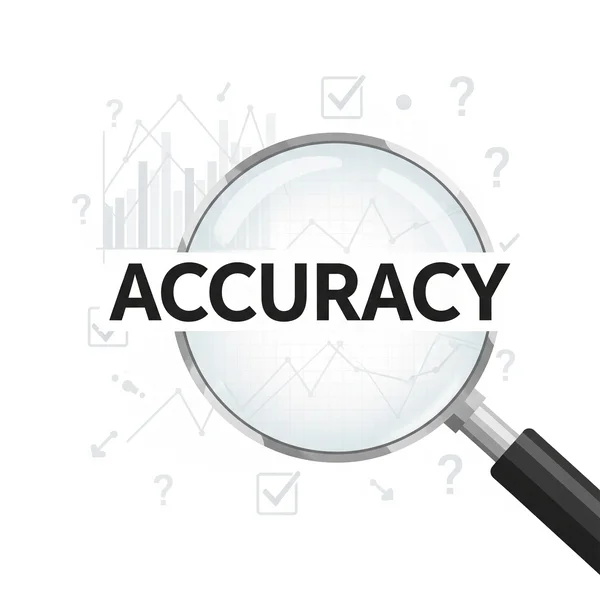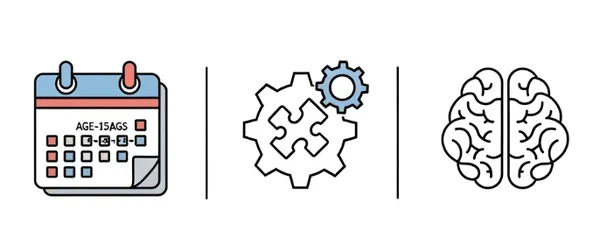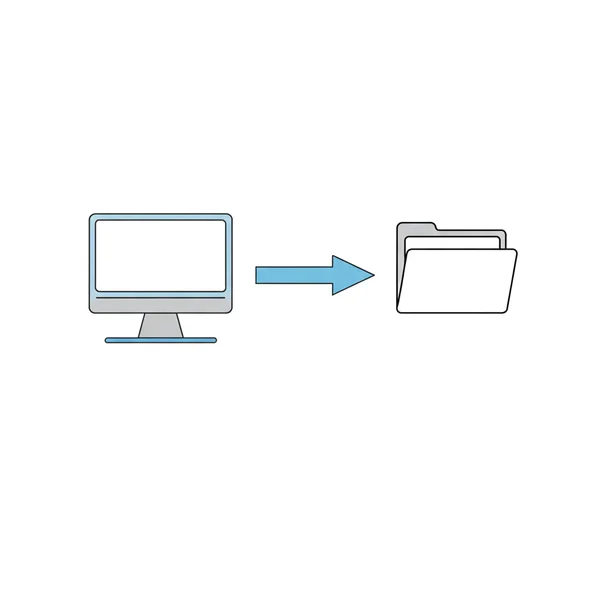Dyslexia Test Accuracy: Screening vs. Diagnosis Truths
Decoding Accuracy: What to Expect from Dyslexia Screening & Formal Tests
When considering any form of testing, especially for something as significant as dyslexia, a primary concern is undoubtedly its accuracy. How accurate is a dyslexia test? This question is common and crucial. The truth is, the "accuracy" of a dyslexia test depends heavily on the type of test—whether it's an initial online screening or a comprehensive formal diagnostic assessment. This article aims to shed light on dyslexia test accuracy, helping you understand what to expect from different approaches and how tools like our online dyslexia screening fit into the bigger picture.
What Do We Mean by "Accuracy" in Dyslexia Testing?
Before we compare different tests, it's important to understand what "accuracy" means in the context of dyslexia testing. It's not just a simple yes or no. How do professionals evaluate if a test is performing well?
Sensitivity: Correctly Identifying Those with Dyslexia Risk
Test sensitivity refers to a test's ability to correctly identify individuals who do have the condition or risk being assessed (in this case, dyslexia or dyslexia risk). A highly sensitive test will miss very few actual cases. For a dyslexia test, this means it’s good at picking up on those who genuinely struggle with dyslexia-related challenges.
Specificity: Correctly Identifying Those Without Dyslexia Risk
Conversely, test specificity refers to a test's ability to correctly identify individuals who do not have the condition or risk. A highly specific test will have few "false alarms," meaning it correctly rules out those who are not at risk for dyslexia. Balancing sensitivity and specificity is key in test development.

Why No Single Test is 100% "Accurate" for Everyone
It's vital to understand that no psychological or educational test, including any dyslexia test, can claim to be a 100% accurate test for every single individual in every situation. Human learning and brain function are complex. Factors like age, co-occurring conditions, and even how someone feels on test day can influence performance. Therefore, results are always interpreted within a broader context.
Accuracy of Online Dyslexia Screening Tests
Many people turn to online dyslexia screening tests for initial insights. What can you expect regarding their accuracy? Is the reliability of online dyslexia screening something you can count on?
The Goal of Screening: Identifying Potential Risk, Not Diagnosing
The primary screening goal is not to provide a definitive diagnosis of dyslexia. Instead, these tools are designed for identifying risk. They aim to quickly and efficiently highlight individuals who show characteristics commonly associated with dyslexia and who might benefit from a more thorough, formal evaluation. This distinction is crucial for understanding their accuracy metrics. Our online dyslexia screening is designed with this specific purpose in mind.
Factors Influencing Dyslexia Screening Accuracy (Age, Test Design)
Several screening accuracy factors can influence how well an online tool performs. The age of the individual being screened is important, as manifestations of dyslexia can change over time. The test design for dyslexia itself—what specific skills it measures (e.g., phonological awareness, decoding speed) and how well those tasks are constructed—also plays a significant role. Well-designed screeners are typically based on current research.

Understanding False Positives and False Negatives in Screening
Because screeners are designed to be sensitive to potential risk, they may sometimes produce false positives for dyslexia (indicating risk when dyslexia isn't present or is due to other factors) or, less commonly with well-designed screeners, false negatives for dyslexia (missing a potential risk). This is an inherent aspect of screening; the aim is to cast a reasonably wide net to catch those who need further attention, accepting a small margin of error.
How Accurate is a Formal Dyslexia Diagnostic Assessment?
When it comes to a formal dyslexia diagnostic assessment, the expectations for accuracy are much higher. What contributes to this?
Comprehensive Nature: Why Formal Diagnosis is More In-Depth
A comprehensive dyslexia assessment is far more in-depth than any online screening. It typically involves a battery of standardized tests administered individually by a trained professional over several hours. These tests assess a wide range of skills, including cognitive abilities, various aspects of reading, spelling, writing, oral language, and phonological processing. This thoroughness allows for a more nuanced and accurate picture.
Role of Qualified Professionals in Ensuring Diagnostic Accuracy
The involvement of qualified professionals for dyslexia assessment (like educational psychologists, neuropsychologists, or speech-language pathologists) is paramount. Their expertise in administering tests, interpreting complex data, considering developmental history, and ruling out other potential causes for reading difficulties is critical to achieving high diagnostic accuracy.

While Highly Reliable, Formal Assessments Still Have Considerations
Even formal assessments, while offering high reliability of dyslexia diagnosis, are not infallible. The skill of the assessor, the appropriateness of the tests chosen, and the individual's engagement on the day can all be factors. However, they represent the gold standard for confirming dyslexia.
Comparing Accuracy: Dyslexia Screening vs. Diagnostic Assessment
So, let's directly compare the accuracy of dyslexia screening versus a formal diagnostic assessment. Many people search for the "most accurate dyslexia test," but it's about understanding the different roles.
Different Purposes Mean Different Accuracy Benchmarks
The purpose of dyslexia tests dictates their accuracy benchmarks. Screening aims for high sensitivity to identify risk. Diagnostic assessment aims for high sensitivity and high specificity to make a formal diagnosis. They are designed for different stages of the identification process.
Why You Can't Expect Diagnostic-Level Accuracy from a Screener
It's unrealistic and inappropriate to expect the same level of diagnostic precision from a brief online screener that you would from a multi-hour, professionally administered assessment. Screeners are valuable tools for initial identification, not for definitive diagnostic statements. Understanding this helps manage expectations regarding dyslexia screening accuracy.
How Screening Complements Formal Assessment for a Full Picture
Think of screening and diagnosis for dyslexia as complementary. A positive screening result from a tool like the dyslexia test at DyslexiaTest.online can be the catalyst for seeking a formal assessment, which then provides the detailed information needed for a diagnosis and tailored support plan.

What Makes a Dyslexia Test (Screening or Diagnostic) More Reliable?
Whether it's a screening tool or a full diagnostic battery, certain factors contribute to the reliability of dyslexia tests. What makes a dyslexia test reliable?
Scientific Basis and Research Validation (Test Validation Dyslexia)
A research-based dyslexia test is crucial. Tests should be grounded in current scientific understanding of dyslexia and reading development. Ideally, they should have undergone test validation for dyslexia, meaning studies have been conducted to show they measure what they claim to measure accurately and consistently for the intended population.
Standardization and Norm-Referencing
Standardized dyslexia tests are administered and scored in a consistent manner for everyone. Many diagnostic tests are also "norm-referenced," meaning an individual's performance is compared to a large, representative sample of peers. This provides a context for interpreting scores.
Consideration of Age-Appropriateness and Cultural Factors
An age-appropriate dyslexia test is essential. Skills and expectations change with age. Furthermore, good tests consider potential cultural and linguistic factors that might influence performance, though this can be a complex area, especially for widely used online tools.
Navigating Dyslexia Testing: Understanding Accuracy for Better Choices
Navigating the world of dyslexia testing can feel complex, especially when it comes to understanding dyslexia test accuracy. The key takeaway is that "accuracy" must be considered in light of the test's purpose. Online screeners serve as valuable, accessible first steps to identify potential risk, while formal diagnostic assessments provide the comprehensive evaluation needed for a definitive diagnosis.
No test is perfect, but by understanding the distinct roles and accuracy considerations of screening versus diagnosis, you can make more informed choices. Using an online dyslexia screening can empower you with initial insights, guiding you toward the right next steps if further concerns are raised.
What are your experiences or questions regarding the accuracy of dyslexia tests? We encourage you to share your thoughts in the comments below!
Frequently Asked Questions about Dyslexia Test Accuracy
What is the most accurate dyslexia test available?
The most accurate dyslexia test method is a comprehensive diagnostic assessment conducted by a qualified professional. This isn't a single "test" but a battery of assessments looking at various cognitive and academic skills. While no test is 100% perfect, this thorough approach provides the highest level of diagnostic accuracy.
Can a free online dyslexia test be accurate?
The accuracy of a free dyslexia test online depends on its design and purpose. If it's positioned as a screening tool to identify potential risk and is based on sound principles, it can be a useful starting point. However, it will not have the diagnostic accuracy of a formal assessment. Always check if the online screening tool explains its basis and limitations.
If a dyslexia screening shows no risk, does it mean I'm definitely not dyslexic?
A dyslexia screening false negative (showing no risk when dyslexia is present) is possible, though less common with well-designed screeners if significant difficulties exist. Screenings have limitations for dyslexia tests. If strong, persistent concerns about reading and spelling difficulties remain despite a "no risk" screening result, seeking a professional opinion or a more comprehensive evaluation is still advisable.
How often should someone be tested or screened for dyslexia for accuracy?
For initial identification, one thorough screening or assessment is usually the starting point. Retesting for dyslexia for diagnostic purposes isn't typically done frequently unless there's a significant change in circumstances or a need to re-evaluate support. However, progress monitoring of reading skills is ongoing in educational settings. The need for re-screening with an online dyslexia test might arise if new concerns emerge at a different developmental stage.